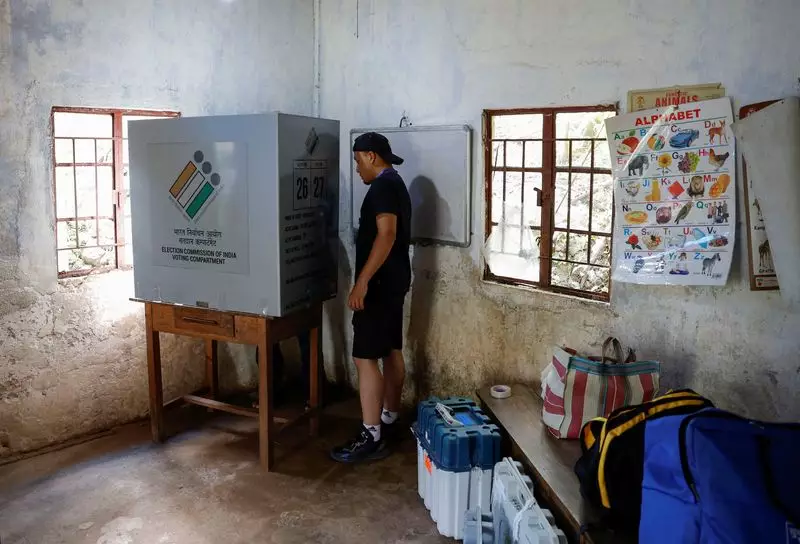India is currently in the midst of the world’s largest election, with Prime Minister Narendra Modi aiming for a historic third term in office. The election, which involves almost one billion voters, is a crucial moment for the future of the country. Modi’s Bharatiya Janata Party (BJP) is up against an alliance of opposition parties, each with its own promises and vision for India’s future. The stakes are high, with issues such as economic growth, welfare, personal popularity, and Hindu nationalism dominating the campaign rhetoric.
Prime Minister Modi’s campaign is centered around the idea of taking India to new heights of economic prosperity and global recognition. He promises to lead the nation into the top three economies of the world, combat poverty, implement new reforms, and make decisions that benefit the people. The BJP’s election manifesto, titled “Modi Ki Guarantee,” underscores the leader-centric approach of Modi’s campaign, presenting him as the driving force behind the party’s vision for the future.
One of the key themes of the election campaign is Hindu nationalism, with Modi’s government and the BJP accused of favoring the Hindu majority at the expense of the Muslim minority. Critics claim that the government’s policies discriminate against Muslims and foment communal tensions, leading to sporadic violence between different religious groups. The issue of Hindu nationalism adds a divisive element to the election, with the opposition portraying it as a threat to India’s secular and democratic values.
The opposition alliance, led by the Congress party and other parties, faces a tough challenge in taking on the BJP. While they criticize the government’s record on issues like unemployment and price rise, the alliance struggles with internal divisions and a lack of a coherent strategy. The arrest of opposition leaders and alleged interference by the government further complicate the opposition’s efforts to mount a strong challenge to Modi and the BJP.
As the election unfolds over the coming days, the people of India will make their voices heard through their votes. The outcome of the election will shape the country’s trajectory for the next five years and beyond. While Modi and the BJP are seen as the front-runners, there are real issues at play that could sway the outcome. It remains to be seen whether Modi’s promises of economic growth and development will resonate with voters or if the opposition’s focus on democratic values and social welfare will gain traction.
India’s election is a critical juncture for the country’s future, with competing visions and ideologies vying for dominance. The outcome of the election will have far-reaching implications for India’s democracy, economy, and social fabric. As the world watches, the people of India have the power to shape their nation’s destiny through their votes.

